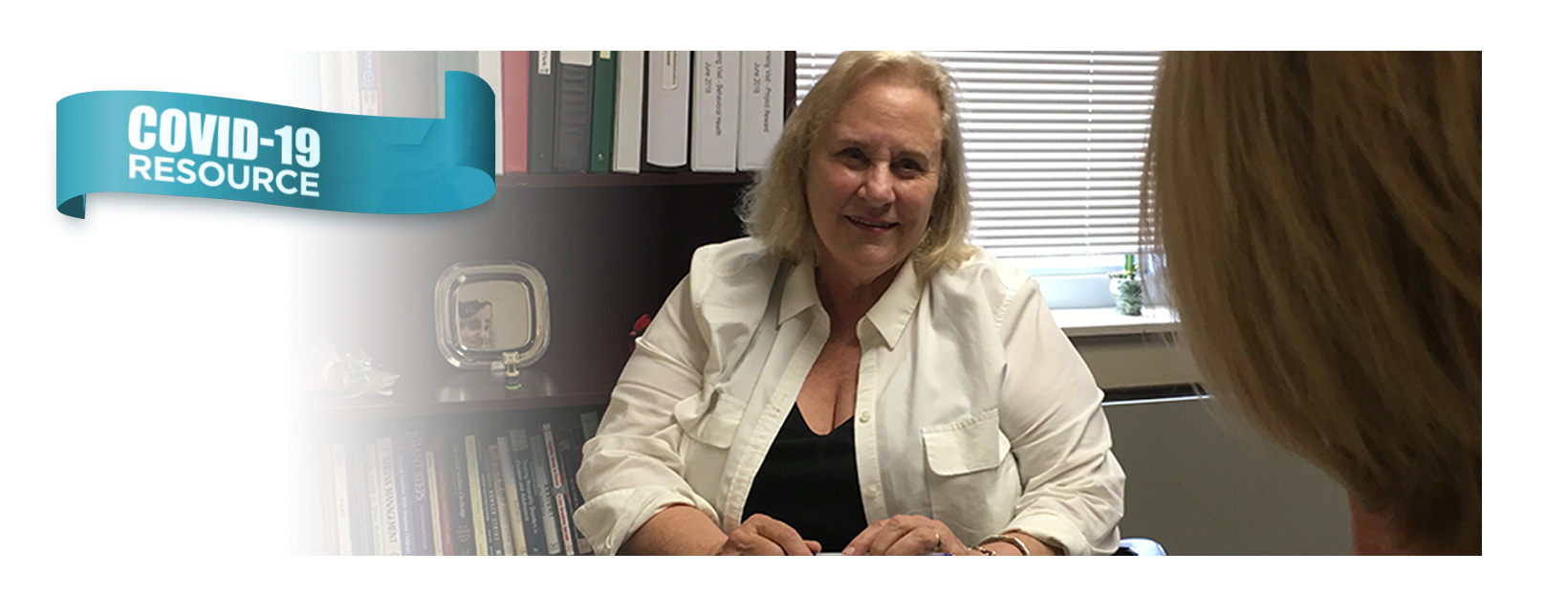
The COVID-19 crisis and the mandatory social isolation that has come with it presents unique challenges most have not had to face before. Elizabeth Murdoch, FCA’s Director of Behavioral Health, shares suggestions for ways to maintain your mental health while remaining safe at home.
While the COVID-19 virus is affecting all of us in some way, not everyone’s experience is the same. Those who are natural introverts may feel comfortable isolating, while those who are extroverted find the experience more challenging. Some individuals may be ill or high-risk, or they may have friends and family in that situation. Many clients who are prone to depression and/or anxiety are telling us that it is more difficult than usual to keep things in perspective and manage their symptoms.
Here are some tips for self-care and emotional wellness during this time:
– Limit exposure to news. Stay as informed as you need to, but turn the TV or social media off for most of the day
– Keep to a schedule as best possible
– Get up, get showered, get dressed
– Go outside if you can. Take advantage of the incoming warm weather. Even a short walk to get fresh air and see the flowers blooming can help
– Have an at-home spa day with face masks, manicures, and/or pedicures
– Make a list of the activities you miss so you can do them all when the crisis ends
– Try a new recipe
– Practice deep breathing and muscle relaxation to reduce tension. There are apps that can guide you through breathing and other relaxation exercises. See the end of this post for video and app suggestions.
– Many yoga and exercise studios are conducting or posting classes via video technology. If these classes are accessible for you, they can be a good way to practice calming mindfulness
– Check out virtual museum tours or use the time to take a webinar to learn something new. See the end of those post for some virtual experiences you can try
– Rely on your supports and try not to worry about being a “burden.” Many people want to be of help, while many others are feeling similar emotions of helplessness and loss of control and can relate and be a good listening ear
It is helpful to focus on what we can control and try to not spend time worrying about what we cannot. What you can control is your own positive attitude, finding fun things to do at home, following CDC guidelines so you can stay well, and being kind and helpful to others. Things we cannot control include the actions of other people, what is going to happen in the future, how long this is crisis is going to last, if others are not social distancing, and how others react to the situation. Try your hardest to let go of anything you cannot change.
If you are anxious (and who isn’t) try working on replacing negative thoughts.
“I know I or someone I love is going to get sick” becomes “I am doing the best I can to stay healthy” or “There’s no evidence right now that I or my loved ones are ill.”
Staying connected can help
There are lots of ways to stay connected during this time, and you may find you have more time to do it! Social connection is a basic human need, and there are many creative ways to see and talk with those you care about. This may also be an opportunity to reach out to people you may not have been in contact with for some time to reconnect.
– Reach out by video or phone to kids or elderly people you know.
– Create new fun ways to interact with friends and family:
– Watch a movie “together”
– Create a virtual dance party and take turns choosing the music
– Read a favorite kid’s book, poem, or passage to one another
– Have a joke or riddle of the day with your social circle
– If someone is celebrating a birthday, anniversary, or other special occasion, have a drive-by visit and make colorful signs to help celebrate
If you are having a hard time, reach out to a trusted friend, family member, or mental health professional. Remember, this is a difficult time, but it will not go on forever.
If you are having thoughts of hurting yourself or someone else, call 911 for assistance.
For crisis intervention that is not a life-threatening emergency, you can call CT Infoline at 211
National Suicide Hotline 1-800-273-8255
Resources
Videos-
Virtual experiences-
Visit the Georgia Aquarium or the Bronx Zoo, virtually
Watch the New York Metropolitan Opera’s free shows every night at 7:30pm
Digitally tour National Parks
The Tribeca Film Festival has launched “A Short Film a Day Keeps the Anxiety Away”
Visit libraries virtually
Check out a museum-
British Museum (home of the Rosetta Stone)
Smithsonian National Museum of Natural History
The Metropolitan Museum of Art
National Women’s History Museum